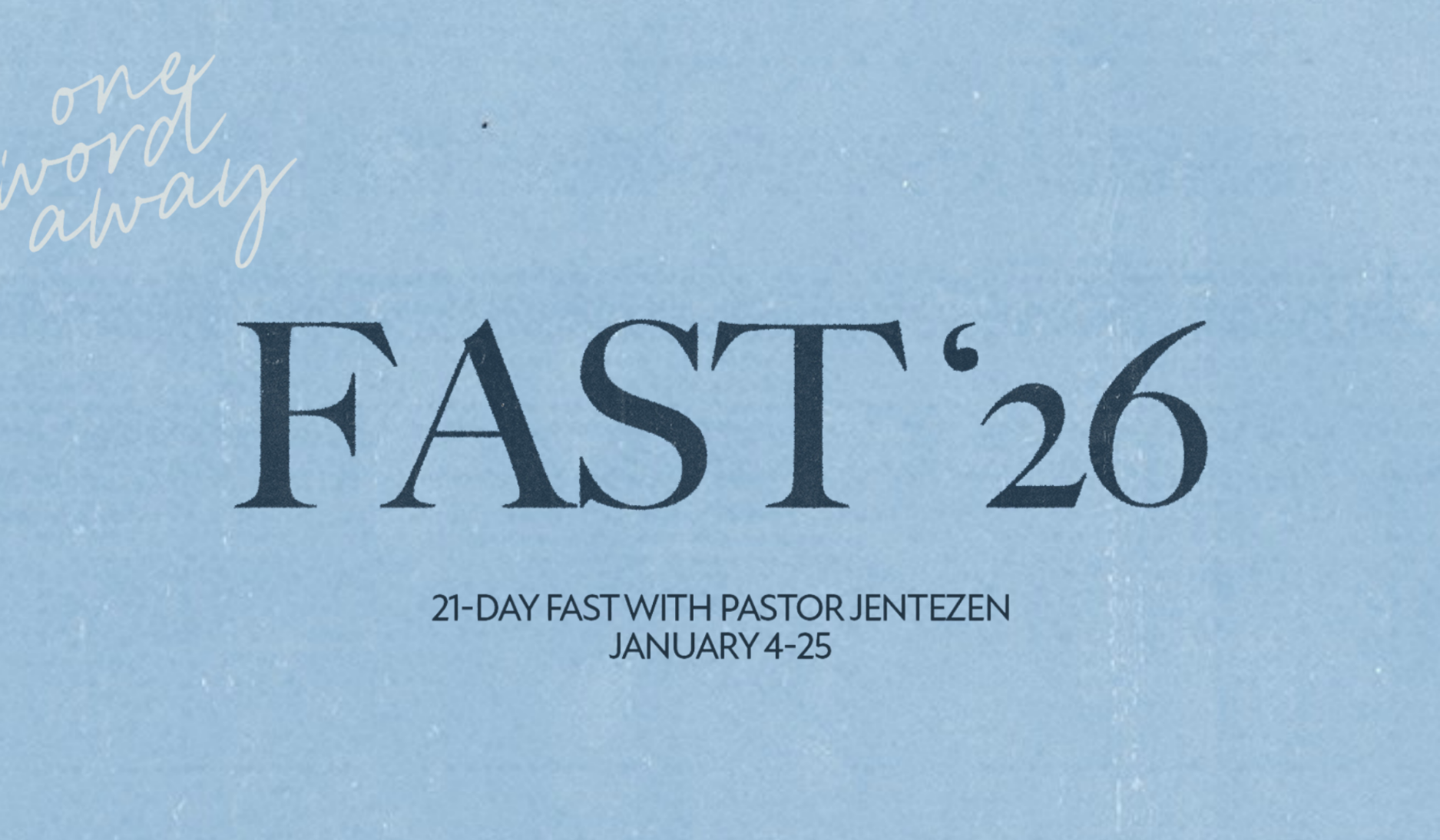Why Christians Should Care about the Jewish Fast of Tevet
For years, Pastor Franklin has been leading Free Chapel worshippers in fasting during the first weeks of January. This year, Pastor Franklin has been deeply committed to the People of Israel through “Comfort My People” and so today marks a significant day on the calendar when both Jews and Christians are fasting together.
There are a number of fast days on the Jewish calendar. Most famous is “Yom Kippur”, the Day of Atonement. However, today marks another fast day for the Jewish people, known as “Asarah B’Tevet”, or the Fast of the 10th of Tevet.
Why do Jews fast on the 10th day of the Hebrew month of Tevet?
The Talmud (Megillah 9a) records that on the 10th of Tevet, King Ptolemy II Philadelphus (285–247 BCE) gathered 72 Jewish scholars and forced them to translate the Torah from Hebrew into Greek. The holy words of the Torah were suddenly widely available to all for the first time. Interlopers began to deliberately mistranslate certain passages to further false theologies. The resulting Septuagint (“translation of the 70”) was mourned as a national disaster for the Jewish people. To the rabbis of the Talmud, the 10th of Tevet thus marks the first devastating act of biblical coercion committed against the Jewish People.
In the Middle Ages, Christians continued to attack the Hebrew Bible and dragged Jews to disputations and forced debates over “problematic” Biblical passages. In a famous example, the leading Torah sage of his generation, Nachmanides (1194-1270), did an admirable job defending his faith to which King James I of Aragon scoffed that never before had he heard "an unjust cause so nobly defended." Nachmanides was let off relatively easy from this disputation and rather than being burnt at the stake, the saintly rabbi was charged by the church with blasphemy and evicted from Spain in 1267.
A final example from the modern era of non-Jews using the Torah against the Jewish People is known as the Napoleonic Sanhedrin of 1807. The great statesman Napoleon Bonaparte organized 71 Jewish notables to answer 12 sensitive questions about Judaism to determine if Jews could be loyal French citizens deserving of equal rights. The Jews were asked uncomfortable questions and forced to compromise their principles in order to win the approval of the secular sovereign.
A cursory reading of Jewish History would lead one to conclude that Jews should stay far away from Christians, and never enter Biblical discussions with them! One could be forgiven for coming to this conclusion in light of our bitter history. However, I believe that today we are in a different generation, and we should look towards this question from a new perspective.
Today, unlike those earlier episodes in our history, the Jewish people are no longer weak subjects of foreign rulers, but sovereign in our own State. While for centuries, Christians used to debate the Bible with the Jews to prove that they were right and we were wrong, today things are different. Many Christians are looking to read the Bible in Hebrew and studying Scripture from a Jewish perspective. They are coming towards us in reconciliation and sincere friendship out of our mutual love for God’s word.
This is why Israel365 has organized Bible study sessions in the Knesset where Jewish lawmakers turn towards Scripture to teach Christian leaders how to govern from a Biblical perspective.
This is why Israel365 has published “The Israel Bible,” the first Tanakh with a commentary written by Orthodox Jews for a largely Christian readership to appreciate the connection between the Land and the People of Israel.
This is why Israel365 started a Yeshiva for the Nations, so that non-Jewish students could study from rabbis and other Judaic scholars in order to better appreciate the ancient wisdom of the Jewish people.
Understandably, some Jews today might be skeptical of Christians studying from Jews. After all, this is a classic missionary tactic. Christian proselytizers often open conversations with unsuspecting Jews by asking them to study together a passage from Tanakh. Even before modern missionaries encouraged Jews to read the Bible, history is replete with sinister episodes where Jews were forced to discuss the Torah in uncomfortable public situations. These incidents never ended well for the Jews.
Even though the Fast of Tevet commemorates a dark chapter in Jewish History, there is an encouraging passage that is vital to read and appreciate and explains why Christians today should care about the Fast of Tevet.
The Hebrew prophet Isaiah wrote that one day the Jewish people will return to their homeland and to their eternal capital. When that day finally arrives, “all the nations shall gaze on it with joy. And the many peoples shall go and say: ‘Come, Let us go up to the Mount of Hashem, To the House of the God of Yaakov; that He may instruct us in His ways, and that we may walk in His paths.” For instruction shall come forth from Tzion, the word of Hashem from Yerushalayim’ (Isaiah 2:2,3, The Israel Bible).
Isaiah describes the final redemption of the world in the end of days and the ultimate spiritual achievement is the day when non-Jews will come to Jerusalem to study Torah.
With the overlapping of the fast of Tevet and the January fast of Pastor Franklin, we should remember that in our generation we are indeed witnessing Isaiah’s great historical turning point and we should all - Jews and Christians - pray that the Almighty God of Israel turn this fast day - and all of our fast days - into feast days!
by Tuly Weisz
Rabbi Tuly Weisz is the director of Israel365 and is Pastor Jentezen Franklin’s partner in Israel for “Comfort my People.”
Share



.png)






